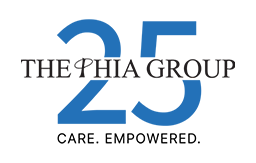If you enjoy making difficult claim decisions that will negatively impact your employees and their families, you can skip this article. If you enjoy accepting full fiduciary liability with no support or protection, you can skip this article. If you are still reading – and we must assume that applies to everyone – then congratulations. You are a candidate for PACE.
PACE stands for Plan Appointed Claim Evaluator. What is it? Why should you care?
On March 23, 2010, the Affordable Care Act (“ACA”), also known as Obamacare, was signed into law. It shook up many standards and minimum requirements applicable to health insurance. The cost of traditional insurance (insurance where the policy holder pays a premium to a carrier, the carrier accepts all of the risk – meaning they pay all of the claims with their own money – and the policyholder pays the same premium regardless of how many or how few claims they file) was already skyrocketing when the ACA went into effect. With the passage of the ACA, those premiums escalated even more. Employers were desperate to offer health benefits that were both robust and affordable. Enter self-funding. Self-funded health benefit plans empowered employers to customize their program (to address only the conditions their participants actually have), and invest funds where they are needed. Waste is curbed, and the plan (comprised of the employer and employees) benefit from the savings. Indeed, it is almost universally agreed that self-funding costs less than traditional insurance. The down side? Risk!
The first risk that comes with self-funding is financial risk. While more often than not employers and their employees were incurring less in medical bills than they were paying in premium to insurance carriers (profit anyone?), there is always the risk that one or two catastrophic illnesses or injuries could bankrupt a self-funded plan sponsor. Stop-loss is the solution. With premiums that are way lower than those paid to health insurance carriers, stop-loss reimburses the plan for eligible expenses paid in excess of their specific deductible.
The second risk? Tough decisions! One of the benefits of traditional insurance is that the “greedy insurance companies” make nice scapegoats. “Why wasn’t my claim paid!” Darn insurance company. “Why isn’t this covered?” Greedy insurance company! When an employer opts to self-fund their own health plan, they also become (or appoint) a plan administrator. That plan administrator accepts a fiduciary duty to manage the plan prudently, and in accordance with the terms of the plan document. That means sometimes making decisions that benefit the many, at the cost of the few… Even when those few are valued colleagues and their families. This is one risk that wasn’t so easy to solve… until now. Keep reading.
Another risk of self-funding? Damages for breaching the aforementioned fiduciary duty. No one wants to make a mistake. That said, mistakes happen. When a claim is submitted to the plan, it may be that you deny the claim improperly. An appeal is filed, and the denial may be upheld – improperly. A second, final appeal is submitted. You once again wrongfully deny payment. This, then, is where things go bad. Following a final appeal, beneficiaries can seek an external review – by an independent review organization (an “IRO”) when the issue is clinical… or a court of law (in all other instances). If the reviewer determines that the mistake, which led to the improper denial, was at all unreasonable or arbitrary, it may be that the benefit plan will not only be ordered to pay the claims… but… the plan administrator may be forced to pay damages for having breached their fiduciary duty. The cost? Up to triple the value of the claims (treble-damages). Yikes!
PACE addresses BOTH of these heretofore unresolved risks. With PACE, plan administrators have a safety-net. Claims arrive as usual. The plan administrator and their claims processor handle the claims as usual. Denied claims are appealed, as usual, and the plan and claims processor respond… as usual. When the second, final appeal arrives – however – this is where, with PACE, things are anything but usual. The final appeal, and all materials relating to the claim and claim decision to-date, are submitted to the experts at The Phia Group. “Phia’s” experts analyze everything, from top to bottom, and even pay to have an IRO perform a clinical review if needed. They will catch mistakes and overturn denials if needed – eliminating the risk of the plan’s error being exposed in court (and eliminating the risk of resulting damages). Likewise, if Phia upholds the denial, if and when the decision is challenged in court, Phia indemnifies the plan administrator against all damages for fiduciary breach. Indeed, Phia even steps in as a co-fiduciary, sharing the burden with the plan sponsor. The result? The only thing the plan is required to pay are payable claims.
Explained this way, PACE sounds amazing. But wait… There’s more. By assigning the burden of handling final appeals to Phia, the plan sponsor has a third party they can look to (and refer to) when someone questions a “tough” decision. This is true both when it comes to plan participants, and stop-loss carriers. An employee is flabbergasted that an appeal failed? Refer them to Phia. A stop-loss carrier wonders why a previously denied claim is now payable, following an appeal, and they – the carrier – are questioning whether they really need to reimburse the claims to the plan? Refer them to Phia.
PACE allows self-funded plans to enjoy many of the benefits and protections that come with traditional insurance, while enjoying the financial victories and custom flexibility that accompany self-funding. It’s a win for plans, a win for employers, and a win for employees. To learn more, contact your Account Manager.
